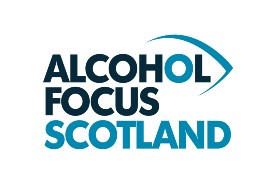Helene
I work as Lead Alcohol Liaison Nurse at the Royal Infirmary of Edinburgh. When people come to A&E with an alcohol-related illness or injury, they are referred to our service for further assessment and potential follow up.
Falls, banged heads, accidents and assaults are all very common in A&E. Saturday nights are the busiest times, with the most discharges on Sundays.
Drunk people are really challenging to deal with. When someone has had too much to drink they make it much more difficult for receptionists, porters, nurses and consultants to get on with their jobs. The Infirmary even has 24 hour police presence in reception because of alcohol-fuelled disorder and aggression.
The effects of alcohol take up a huge amount of NHS time, money and resources. But more importantly, alcohol can devastate people's lives.
I see this every day I'm on shift - from the young guy who's got himself a criminal record after a drunken fight on a night out, to the chronic drinker who's been in and out of treatment for years and whose family are no longer in touch.
Just the other day, there was an extremely concerned sister worried that her brother would pull the wool over the nurses' eyes and be dishonest about his drinking when it was actually causing significant problems to himself and others.
In another case, a guy lost his job due to his alcohol problems and was staying with his elderly mother. This caused a lot of stress among the other siblings and their own families.
Mental health problems alongside alcohol problems are very common. I see cases where patients are deliberately self-harming when under the influence of alcohol. When sober, patients wouldn't have suicidal thoughts but drinking makes them act on impulse.
Homeless street drinkers are another big group who are referred to the alcohol liaison service.
My team work with patients to put in place a plan to cut down their drinking or refer them to specialist substance misuse services in the community. This is very dependent on their motivation to change their drinking behaviour.
Really heavy drinkers choose the cheapest, strongest ciders. I really feel we need to look at the cost of alcohol and the wide availability. We need to do more to address this in Scotland. It leads to misery not only for the patients concerned but their relatives and friends too.
